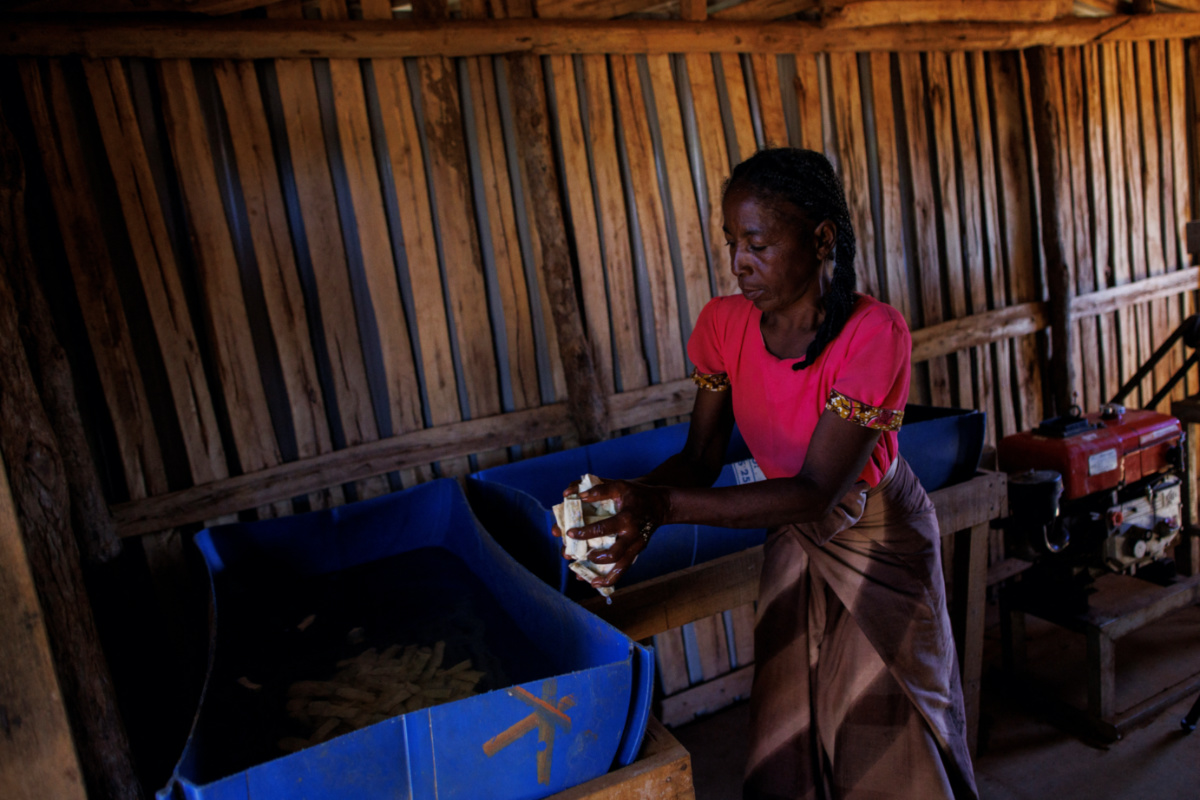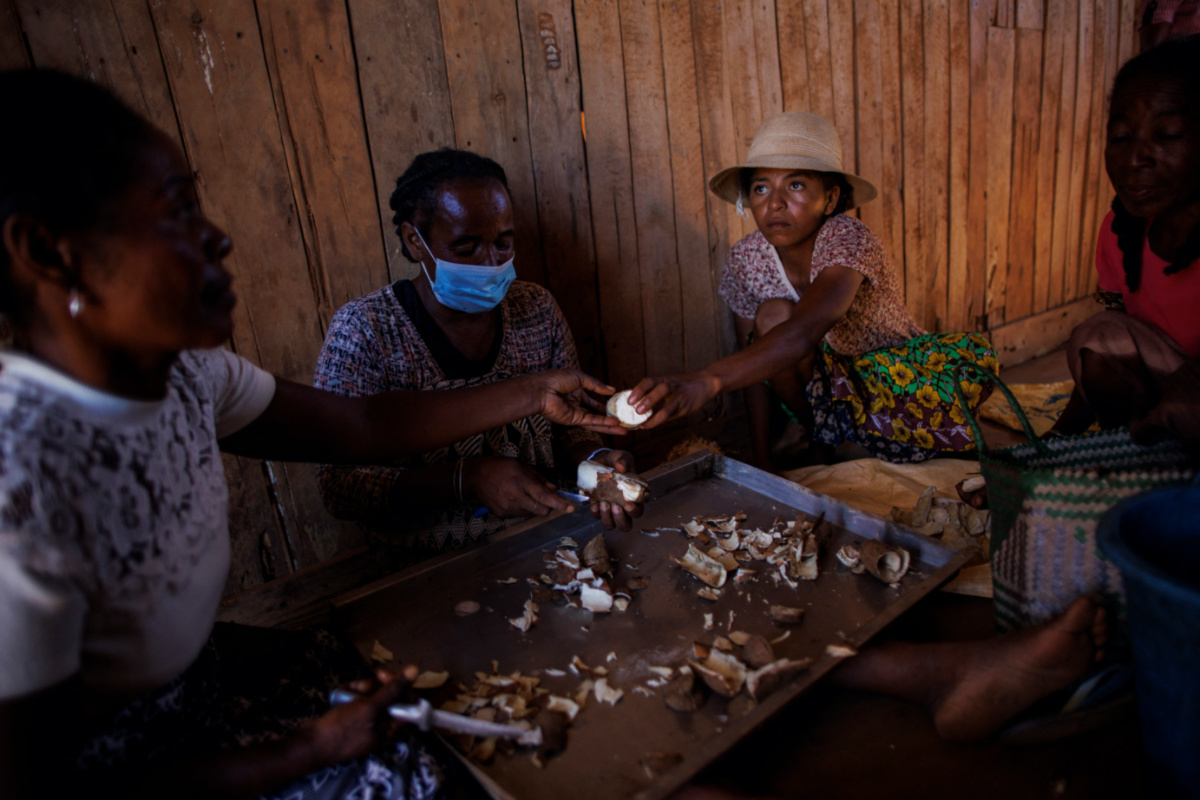
CHRISTOPHE VAN DER PERRE, of Reuters, reports from Madagascar on an initiative aimed at addressing food insecurity…
Ambovombe, Madagascar
Reuters
Starting out with the modest aim of making packed lunches for pupils at a school in this town in southern Madagascar, a local women’s group has morphed into a commercial enterprise and a new tool in the struggle against food insecurity.
Madagascar produces large amounts of cassava, a root vegetable, which can be kept for about three months. But the women of Miray Hina have acquired skills and machines to process it into gari, a staple product in West Africa, a form that allows it to keep for three years as a nutritional safety net.

Member of the Women’s Association Fideline Volianomby cleans peeled cassava in the association’s workshop in the town of Ambovombe, in the Androy region, Madagascar, on 14th February. PICTURE: Reuters/Alkis Konstantinidis.
“The idea is to have reserves at home and food available to feed the children if there is bad weather or in case another food crisis happens,” said group organiser Vola Tiandraza, referring to a recent period of food shortages caused by four years of drought.
Branching out from their original activity, the women now also grow vegetables, make soap, jam and mats for sale.
Fideline Volianomby, a single mother of five, used to eke out a living by washing other people’s laundry, but could afford to send only two of her children to school. Since joining the Miray Hina (Together) group, she has acquired news skills and is earning more money.
“My life is evolving at the moment because now my five children go to school,” she said. “We don’t need to depend on a man. We are independent.”

Members of the Women’s Association cut cassava in the association’s workshop in the town of Ambovombe, in the Androy region, Madagascar, on 14th February. PICTURE: Reuters/Alkis Konstantinidis.
When the group started out, the food for the children’s packed lunches came from the United Nations World Food Programme. Then the women started growing vegetables on a patch of ground behind the school building.
With the help of volunteers like Tiandraza, the group sourced training and materials to produce jam from cactuses that grow wild in the area, artesanal soap and mats.
Empowering women to be financially independent was a big motivation, said Tiandraza.
“Here it is tradition that men decide on everything, so when girls are about 10 or 11-years-old, men decide they don’t need to go to school and the mother is not able to say anything because she doesn’t earn anything,” she said.





